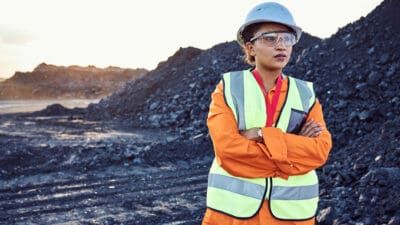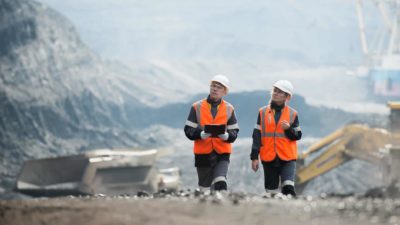The S&P/ASX 200 (Index:^AXJO) (ASX:XJO) index may be hitting new 11.5-year highs but that's no thanks to the ASX miners as the sector heavyweights are dragging on the market as iron ore price dips.
The top 200 stock benchmark is rallying 0.6% in after lunch trade to 6,760 while the Fortescue Metals Group Limited (ASX: FMG) share price tumbles over 3% to $8.92 in after lunch trade – making it the third worst performer on the index after the Cooper Energy Ltd. (ASX: COE) share price and Speedcast International Ltd (ASX: SDA) share price.
The other iron ore majors are also significantly underperforming today with the BHP Group Ltd (ASX: BHP) share price falling 1.1% to $41.40 while the Rio Tinto Limited (ASX: RIO) share price gave up 1.5% to $104.56 at the time of writing.
Is the iron ore price about to crash?
The sell-off was triggered by the falling iron ore price as the Dalian futures contract fell 2.7%. The price of the commodity is still at eye-watering heights at around US$120 a tonne, and if it held around the currently level, ASX-listed iron ore producers will enjoy a significant profit upgrade.
But here's the rub. Some commodity analysts do not believe the price of the steel making ingredient can hold above US$100 a tonne for long. In fact, some think we will see a painful correction from August as Chinese steel mills (the biggest consumers of Australian iron ore) pare production due to falling profitability.
I've even heard one research house predicting that iron ore will crash to US$55 a tonne in the not-too-distant future.
Why ASX miners are still one of the best shows in town
I am not alarmed. Iron ore demand is primarily driven by the Chinese government's infrastructure building stimulus program to offset the slowdown in exports from the US-China trade war.
Being able to reliably forecast the iron ore is like jumping through two hoops when both are on fire. One has to predict if and when the trade war will be resolved and when China will take its foot off the gas in terms of its stimulus program. Both are linked but not mutually exclusive.
The thing is, despite the truce between US President Donald Trump and China's Xi Jinping, it's probably going to take quite a while before the trade differences can be resolved.
In the meantime, the best way for China to offset the slowdown is to build bridges, roads and rail. Growth is important to China as that's how its government controls social unrest.
Even if the trade dispute is resolved sooner than expected, that is not necessarily a bad thing for commodity prices as the deal should stimulate global economic growth.
Further, I can't see the share prices of our miners crashing as long as our share market holds up. I am overweight on the sector and I don't intend to change this position unless I believe the market bull run that has taken the ASX 200 to its highest level since 2007 is finally over.






